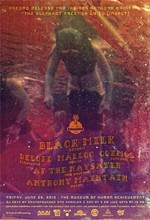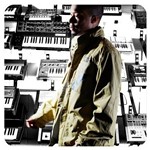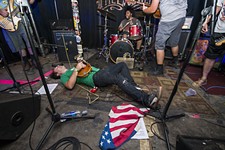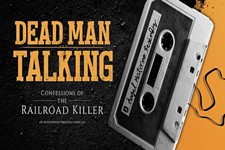Sound of the City
Black Milk's Detroit "oomph"
By Chase Hoffberger, 12:16PM, Wed. Jan. 13, 2010
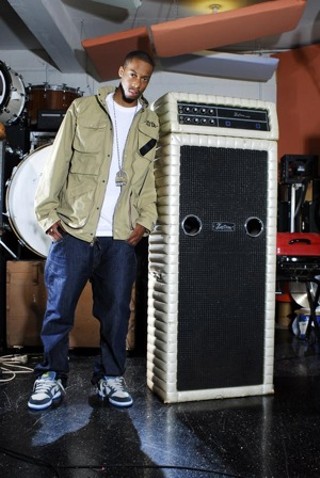
You can feel it after the first minute of conversation: He’s smart. Possibly book smart, though we didn’t get to talk about books. No, Black Milk’s smart in that “the older I get, the more I realize how little I know” way, the kind of intelligence that makes a producer want to try new things.
At 26, Detroit’s Black Milk (born Curtis Cross) has already emceed and produced his way through three solo LPs and an EP, collaborated with Bishop Lamont, and handled production on two Slum Village albums and a T3 solo album.
He plans to release two albums this year: His own Album of the Year and Random Axe, which he’s making in conjunction with Sean Price and Guilty Simpson. He’s worked his tail off, but Milk’s also well aware that it wasn’t until late 2008’s Tronic that he finally began to pave away from the J Dilla mold he’d grown so comfortable in. If the recently leaked “Keep Going” is any indication, he’s headed in the right direction.
Check Yo' Self: Local promoter Matt Sonzala, whose birthday you’ll be celebrating on Friday, touts your hometown of Detroit as the city making the realest hip-hop these days.
Black Milk: I wouldn’t say we’re making the realest hip-hop, but I will say that we’re making a certain style of hip-hop that has a feel separating other regions of the country and the world. We have something that sounds very unique, and I wouldn’t say it’s realer than anything. It’s just a different feel.
CYS: What is that Detroit feel?
BM: It’s definitely soulful, in the sense that it’s raw. I really can’t explain it because all the producers and people I work with, we all experiment with different styles and genres of music. When you talk about the producers out of Detroit, whether they work with rappers or singers, we experiment with everything from soul music all the way to techno and electronic music. There’s just a big collage of sounds and styles of music. When you’re talking about the hip-hop sound in particular, of course J Dilla is the godfather of the sound that exposed Detroit hip-hop to the world. Before Dilla there really wasn’t a distinct sound that people could talk about. He started it all off. After that, you’ve got people like Karriem Riggins, Waajeed, and myself, but it all extends from him. The sound’s really built around hard drums, different kinds of melodic samples. Sometimes we’ll get experimental and go real left, but there’s usually this swing, and I can’t describe it, but there’s just a feel from being around people like Slum Village and listening to that stuff since I was like 15. I started listening to Slum Village when I was 15 or 16 years old. My older cousin, he used to spin Volume 1 and some of Volume 2 before it even got released, when it was just a cassette tape around Detroit. It’s the same thing with Karriem and Waajeed. If you’re not from here or from this circle, you can’t duplicate that feel. You can try, but it won’t be right on the money. That’s the Detroit hip-hop sound. It all comes from Dilla.
CYS: What about Detroit lends itself to such sincere musical success?
BM: I think that any style of music that has raw emotion and raw talent and a certain feel. When you capture it, it’s pure; music listeners are drawn to that. A lot of artists from here are making music from their basement or on small studio setups somewhere in their house, whether it’s hip-hop or whatever. That brings an element of rawness. It makes things comfortable, as opposed to being in a million-dollar studio. It’s a different kind of atmosphere. There’s definitely a certain magic to the city, though, and I think that it’s because Detroit’s a really gray city. It’s kinda grimy out here and middle class. That comes out in the music. It’s real honest.
CYS: You never shy away from the Dilla comparisons. It seems like you take pride in them.
BM: I feel that. Dilla was the person to make me even want to start making beats, so if I’d never heard his music, I probably wouldn’t even - I don’t know what I’d be doing right now. Any artist you ask, from back in the day all the way up 'til now, had someone else who came before them that influenced them and made them want to do what they do, whether it’s Michael influenced by James or Prince or whoever. J Dilla was that artist for me. A lot of my earlier beats sounded just like Dilla’s music, too. As time’s gone on and I’ve learned more about music theory, music production, I’ve learned to create my own lane. There are negative people who say that I’m actually trying to be Dilla and bite Dilla, and then there’s the other side who say that I give them the same feelings as when they listen to Dilla. But we all – me, Karriem, Waajeed, T3 – have Dilla influences. We’ve created our own sound, and I’m definitely at that point at 26. I’m creating a more organic sound than I’ve ever made in my whole career. But yeah, I don’t shy away from it. It’s a compliment, to tell you the truth, when people compare me to him and think that I can get close to the level of music that he’s on. I think he’s so far ahead of his time that people are still trying to catch up.
CYS: If there’s a guy you can be compared to, he’s a pretty good choice.
BM: [Laughs] Yeah, man. Word.
CYS: Did you have a personal relationship with him?
BM: No, I didn’t have the personal partying, hanging out type of relationship with him. The only time I kicked it with Dilla was when he’d come up to the studio where Slum recorded. I saw him a few times out in Cali at video shoots. But the only time I’d really see him was when he’d come fuck with Slum.
CYS: You have a new album coming out.
BM: Yeah, Album of the Year. I’m trying to wrap that up. That’s coming together, and it’s so crazy right now. Creating this album, I’ve just expanded like I never have before. I just hope people can understand what’s going on when they listen to the music. It’s gonna be dope, and I think people will be surprised when they see what I’m coming with.
CYS: Why call it Album of the Year?
BM: 2009 was probably the most insane year I’ve experienced in my life. A lot of the album reflects specific instances in that time. And it’s a pretty good play on words.
CYS: You said you used Tronic to break out of the Dilla mold, and that this album would kind of be a consummation of that. What are you trying to do that’s so different from Popular Demand and Tronic?
BM: I didn’t try to do anything differently. I think that any artist wants their newest product to be better than the last. I obviously went in there trying to make a better album than Tronic, which I thought wasn’t going to be an easy thing to do. Going into this album, the process started the same as on any project. I was digging through record stores, trying to find loops and sounds that I could bring back to the crib. Every beat you hear from me starts in my pre-production session at home. So I’d make a beat, bring it into the studio, and dump it. Of course on Tronic I incorporated a little live instrumentation and knew I’d want to continue with that on this album. So it ended up that I was bringing in Daru [Jones] – he plays drums for me and will actually be in Austin at our show – and we played around on about eight or nine rough cuts for a week. I’d have him play the drums over my beats, and the tracks would just sound totally different. It was crazy. The element he was adding to the music was so insane to me that we had to stop and sit back and just go like, “Yo, what the fuck are we doing right now?” It sounded great to us, but we just had to think, “What is going on? Are people gonna get this?” So he did that, and I work with a funk band out here called the Will Sessions, and I’d have their trumpet player, Sam Beaubien, come through and play horns on a few songs and we’d get live bass. This album will definitely have more of a live feel than anything I’ve done before, even Tronic. I don’t want people to be scared and think they’re about to get some supermusical jazz thing. I know the risks you take when you try to incorporate live music into hip-hop. I made sure to keep that "oomph" coming through the speakers. I still kept my drums in it. [Daru] played on top of my drums, but I didn’t take anything out. When people work with live musicians, especially in hip-hop, they take away everything and just have the instruments go. I didn’t do that. I kept it all in and had them play on top of it. That’s kind of the feel of the album: crazy drum patterns and all that shit.
CYS: We’re not talking an Electric Circus-style album?
BM: [Laughs] No, we’re definitely not going Electric Circus-style. This will be much more of a cohesive thing. People are gonna know the direction I’m going when they hear it. It’s not like it’s gonna be going all over the place.
CYS: Is it a relief to work on your own albums after working as just a producer on other people’s projects?
BM: Definitely. That’s the great thing about being a producer-MC. When the public hears an album, they’re not so thrown off if I get experimental, because they already know I’m a musical cat. If I was just an MC rapping on some real experimental shit, they’d probably take it the wrong way and be like “What the fuck is going on?” Plus, a lot of the music I do for myself I can’t give to certain artists. Not that they can’t rap over the track, it just wouldn’t sound right because it’s too hard or too musical. The tracks I’m doing for my album, I can’t put on the Random Axe album. It just wouldn’t sound right hearing Sean rap over certain tracks that I use for myself because he doesn’t have the same feel. I definitely get to do a lot more when I work on my own stuff.
A note to readers: Bold and uncensored, The Austin Chronicle has been Austin’s independent news source for over 40 years, expressing the community’s political and environmental concerns and supporting its active cultural scene. Now more than ever, we need your support to continue supplying Austin with independent, free press. If real news is important to you, please consider making a donation of $5, $10 or whatever you can afford, to help keep our journalism on stands.





